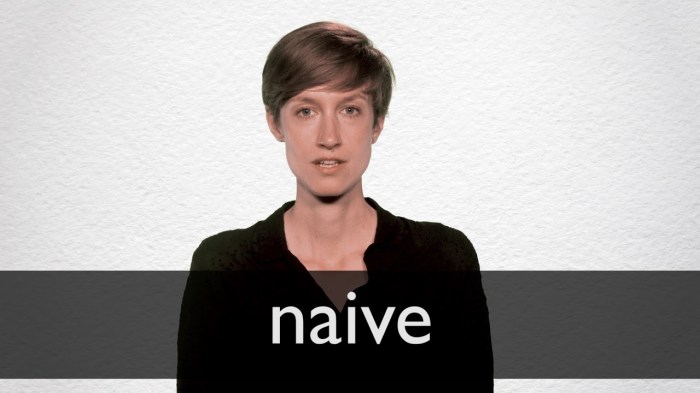Please don’t eat the daisies meaning – Delving into the realm of “Please Don’t Eat the Daisies,” this article embarks on an in-depth journey to uncover its multifaceted meanings, cultural significance, and contemporary interpretations. From its historical origins to its artistic expressions, we delve into the depths of this enigmatic phrase, unraveling its layers of meaning and relevance.
The phrase “Please Don’t Eat the Daisies” has captivated the public imagination for generations, inviting us to ponder its literal and figurative implications. As we delve into its history, we uncover the circumstances that gave rise to this intriguing expression, tracing its evolution from a cautionary warning to a cultural phenomenon.
Historical Context
The phrase “Please Don’t Eat the Daisies” originated from a humorous 1957 book by Jean Kerr, an American humorist and playwright.
The book, which was later adapted into a Broadway play and a 1960 film of the same name, chronicled the humorous misadventures of a suburban housewife who attempts to balance her domestic responsibilities with her desire for a more fulfilling life.
Origin of the Phrase
The phrase “Please Don’t Eat the Daisies” is a playful plea from the housewife to her husband, who is constantly distracted by his work and fails to appreciate the beauty of the daisies in their garden.
Literal Interpretation
The literal meaning of the phrase “Please don’t eat the daisies” is a direct instruction not to consume daisies.
Consequences of Consuming Daisies
While daisies are generally considered non-toxic to humans, consuming large quantities of daisies can lead to mild gastrointestinal distress, such as nausea, vomiting, or diarrhea.
In rare cases, consuming daisies can cause more severe reactions in individuals with specific allergies or sensitivities.
Figurative Meaning
The phrase “Please don’t eat the daisies” carries a figurative meaning beyond its literal interpretation. It serves as a metaphor, conveying a hidden message or implication that extends beyond the surface meaning of the words.
The figurative meaning of this phrase is to refrain from engaging in activities that are potentially harmful or destructive. It implies that certain actions, though seemingly harmless or alluring, can have negative consequences if pursued.
Hidden Message
The phrase “Please don’t eat the daisies” suggests that there are certain boundaries or limitations that should be respected. By “daisies,” it refers to things that may appear appealing or tempting but can lead to trouble or undesirable outcomes.
The hidden message is a caution against impulsive or reckless behavior. It encourages individuals to consider the potential risks and consequences before taking actions that could have negative repercussions.
Cultural Impact: Please Don’t Eat The Daisies Meaning

The phrase “Please Don’t Eat the Daisies” has permeated popular culture, becoming a widely recognized and referenced expression. Its enduring relevance stems from its versatility, resonating with audiences across generations and contexts.
Literary Influence
The phrase’s origins in the 1957 novel and subsequent 1960 film of the same name have left a lasting mark on literature and popular culture. The novel’s humor and relatable themes of suburban life and domesticity struck a chord with readers, cementing the phrase as a cultural touchstone.
Everyday Usage
Beyond its literary origins, “Please Don’t Eat the Daisies” has become a ubiquitous expression used in various everyday contexts. It serves as a gentle reminder to respect boundaries, whether in personal relationships, social interactions, or professional settings.
Artistic Expressions
The phrase has also found its way into various artistic mediums, including music, film, and television. Songs such as “Don’t Eat the Daisies” by The Kingston Trio and films like “Eat the Daisies” (1966) have referenced the phrase, paying homage to its cultural significance.
Symbolism and Meaning
In addition to its literal meaning, “Please Don’t Eat the Daisies” has acquired symbolic connotations. It represents the importance of preserving and respecting the delicate balance of life, whether in nature or human relationships.
Enduring Legacy
Over the decades, “Please Don’t Eat the Daisies” has remained a vibrant and adaptable phrase, reflecting the evolving cultural landscape. Its versatility and enduring appeal ensure its continued relevance in popular culture for generations to come.
Modern Interpretations
The phrase “please don’t eat the daisies” has undergone a significant evolution in its meaning over time. In the contemporary era, it has transcended its literal interpretation to acquire a broader figurative significance and find applications in diverse contexts.
One notable contemporary interpretation of the phrase is its use as a metaphor for preserving innocence and protecting vulnerable individuals or ideas. In this context, “daisies” represent purity, fragility, and values that should be cherished and safeguarded. The phrase serves as a gentle reminder to respect boundaries, avoid harmful actions, and nurture the delicate aspects of life.
Applications in Contemporary Culture
- Mental Health Awareness:The phrase has been employed in mental health campaigns to encourage empathy and understanding towards individuals with mental illnesses. It highlights the importance of treating others with kindness and respecting their vulnerabilities.
- Environmental Protection:In the realm of environmental conservation, “please don’t eat the daisies” has become a slogan advocating for the preservation of natural ecosystems. It reminds individuals to appreciate the beauty and fragility of nature and to refrain from actions that could harm it.
- Creative Expression:The phrase has also found its way into creative works, such as literature and art. It has been used as a title or theme to explore topics of innocence, vulnerability, and the need for protection in a complex world.
Social Commentary

The phrase “Please don’t eat the daisies” serves as a social commentary on the importance of preserving innocence and individuality.
It reflects the societal norm of protecting the young and vulnerable, as well as the value placed on creativity and non-conformity. The phrase suggests that society should not stifle the unique qualities of individuals, but rather encourage them to express themselves freely.
Preserving Innocence
The daisies in the phrase represent the innocence and vulnerability of children. By asking people not to eat the daisies, the speaker is essentially asking them to protect and nurture the innocence of the young.
Encouraging Individuality
The phrase also reflects the value placed on individuality. The daisies represent the unique qualities that make each person special. By asking people not to eat the daisies, the speaker is asking them to respect and celebrate the differences that make each individual unique.
Literary Analysis
The phrase “Please Don’t Eat the Daisies” has been used in several literary works, contributing to the themes and character development within these stories.
Jean Kerr’s Play
In Jean Kerr’s play of the same name, the phrase is used as a recurring motif throughout the story. The protagonist, Kate Mackay, uses it as a plea to her husband to avoid the distractions of the outside world and focus on their family.
The phrase serves as a reminder of the importance of domestic life and the sacrifices made for family relationships.
John Updike’s Novel
In John Updike’s novel “Rabbit, Run,” the phrase “Please Don’t Eat the Daisies” is used ironically to highlight the protagonist’s lack of commitment to family life. Harry “Rabbit” Angstrom uses the phrase to deflect his wife’s attempts to engage him in domestic responsibilities.
The phrase becomes a symbol of Rabbit’s selfishness and his inability to prioritize his family’s well-being.
Sylvia Plath’s Poetry
In Sylvia Plath’s poem “Daddy,” the phrase “Please Don’t Eat the Daisies” is used as a metaphor for the speaker’s desire to break free from societal expectations. The speaker addresses her father, who represents the oppressive patriarchal society, and implores him to stop controlling her life.
The phrase becomes a symbol of the speaker’s rebellion against the traditional roles assigned to women.
Artistic Expressions

The phrase “Please Don’t Eat the Daisies” has been interpreted and expressed through various artistic mediums, each conveying its unique meaning and significance.
Paintings, sculptures, and music have captured the essence of the phrase, offering visual and auditory representations that explore its literal and figurative meanings.
Paintings, Please don’t eat the daisies meaning
In paintings, the phrase often takes on a literal interpretation, depicting scenes of people or animals interacting with daisies in a playful or humorous manner.
For example, Norman Rockwell’s iconic painting “Please Don’t Eat the Daisies” (1955) portrays a young boy seated in a field of daisies, with a stern expression and a raised hand, as if commanding the viewer not to harm the flowers.
Sculptures
Sculptures also offer literal representations of the phrase, often using abstract or symbolic forms to convey its message.
For instance, the sculpture “Please Don’t Eat the Daisies” by Peter Randall-Page (2007) depicts a giant daisy made of bronze, with its petals curling inward as if to protect its center from being consumed.
Music
In music, the phrase has been used as a title for songs and as lyrics, exploring its figurative and emotional meanings.
For example, the song “Please Don’t Eat the Daisies” by the Kingston Trio (1964) uses the phrase as a metaphor for the innocence and fragility of childhood, pleading with listeners to preserve its beauty.
Answers to Common Questions
What is the literal meaning of “Please Don’t Eat the Daisies”?
The literal meaning of the phrase is a warning against consuming daisies, which can be toxic to humans.
What is the figurative meaning of “Please Don’t Eat the Daisies”?
The figurative meaning of the phrase is a caution against engaging in reckless or harmful behavior, often with unintended consequences.
How has the phrase “Please Don’t Eat the Daisies” been used in popular culture?
The phrase has been used in numerous films, television shows, books, and songs, often as a humorous or ironic reference to the dangers of ignoring warnings.